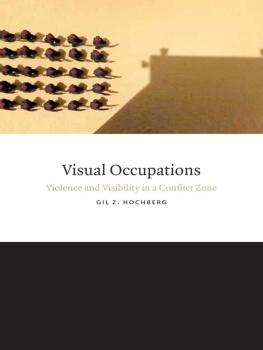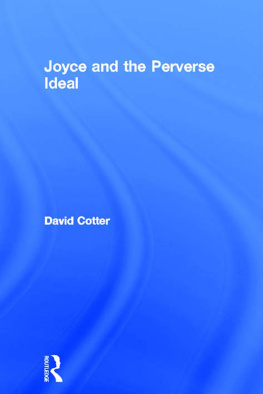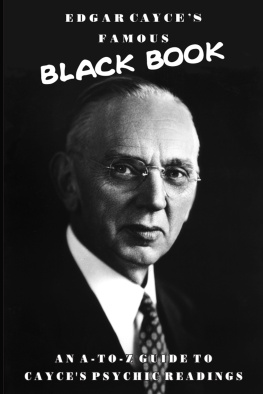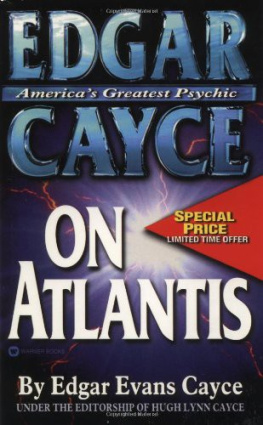Edgar Poe - The Imp of the Perverse
Here you can read online Edgar Poe - The Imp of the Perverse full text of the book (entire story) in english for free. Download pdf and epub, get meaning, cover and reviews about this ebook. genre: Prose. Description of the work, (preface) as well as reviews are available. Best literature library LitArk.com created for fans of good reading and offers a wide selection of genres:
Romance novel
Science fiction
Adventure
Detective
Science
History
Home and family
Prose
Art
Politics
Computer
Non-fiction
Religion
Business
Children
Humor
Choose a favorite category and find really read worthwhile books. Enjoy immersion in the world of imagination, feel the emotions of the characters or learn something new for yourself, make an fascinating discovery.

The Imp of the Perverse: summary, description and annotation
We offer to read an annotation, description, summary or preface (depends on what the author of the book "The Imp of the Perverse" wrote himself). If you haven't found the necessary information about the book — write in the comments, we will try to find it.
The Imp of the Perverse — read online for free the complete book (whole text) full work
Below is the text of the book, divided by pages. System saving the place of the last page read, allows you to conveniently read the book "The Imp of the Perverse" online for free, without having to search again every time where you left off. Put a bookmark, and you can go to the page where you finished reading at any time.
Font size:
Interval:
Bookmark:
The Imp of the Perverse
by Edgar Allan Poe
In the consideration of the faculties and impulsesof the prima mobilia of the human soul, the phrenologists have failed to make room for a propensity which, although obviously existing as a radical, primitive, irreducible sentiment, has been equally overlooked by all the moralists who have preceded them. In the pure arrogance of the reason, we have all overlooked it. We have suffered its existence to escape our senses, solely through want of beliefof faith;whether it be faith in Revelation, or faith in the Kabbala. The idea of it has never occurred to us, simply because of its supererogation. We saw no need of the impulsefor the propensity. We could not perceive its necessity. We could not understand, that is to say, we could not have understood, had the notion of this primum mobile ever obtruded itself;we could not have understood in what manner it might be made to further the objects of humanity, either temporal or eternal. It cannot be denied that phrenology and, in great measure, all metaphysicianism have been concocted a priori. The intellectual or logical man, rather than the understanding or observant man, set himself to imagine designsto dictate purposes to God. Having thus fathomed, to his satisfaction, the intentions of Jehovah, out of these intentions he built his innumerable systems of mind. In the matter of phrenology, for example, we first determined, naturally enough, that it was the design of the Deity that man should eat. We then assigned to man an organ of alimentiveness, and this organ is the scourge with which the Deity compels man, will-I nill-I, into eating. Secondly, having settled it to be God's will that man should continue his species, we discovered an organ of amativeness, forthwith. And so with combativeness, with ideality, with causality, with constructiveness,so, in short, with every organ, whether representing a propensity, a moral sentiment, or a faculty of the pure intellect. And in these arrangements of the Principia of human action, the Spurzheimites, whether right or wrong, in part, or upon the whole, have but followed, in principle, the footsteps of their predecessors: deducing and establishing every thing from the preconceived destiny of man, and upon the ground of the objects of his Creator.
It would have been wiser, it would have been safer, to classify (if classify we must) upon the basis of what man usually or occasionally did, and was always occasionally doing, rather than upon the basis of what we took it for granted the Deity intended him to do. If we cannot comprehend God in his visible works, how then in his inconceivable thoughts, that call the works into being? If we cannot understand him in his objective creatures, how then in his substantive moods and phases of creation?
Induction, a posteriori, would have brought phrenology to admit, as an innate and primitive principle of human action, a paradoxical something, which we may call perverseness, for want of a more characteristic term. In the sense I intend, it is, in fact, a mobile without motive, a motive not motivirt. Through its promptings we act without comprehensible object; or, if this shall be understood as a contradiction in terms, we may so far modify the proposition as to say, that through its promptings we act, for the reason that we should not. In theory, no reason can be more unreasonable, but, in fact, there is none more strong. With certain minds, under certain conditions, it becomes absolutely irresistible. I am not more certain that I breathe, than that the assurance of the wrong or error of any action is often the one unconquerable force which impels us, and alone impels us to its prosecution. Nor will this overwhelming tendency to do wrong for the wrong's sake, admit of analysis, or resolution into ulterior elements. It is a radical, a primitive impulse-elementary. It will be said, I am aware, that when we persist in acts because we feel we should not persist in them, our conduct is but a modification of that which ordinarily springs from the combativeness of phrenology. But a glance will show the fallacy of this idea. The phrenological combativeness has for its essence, the necessity of self-defence. It is our safeguard against injury. Its principle regards our well-being; and thus the desire to be well is excited simultaneously with its development. It follows, that the desire to be well must be excited simultaneously with any principle which shall be merely a modification of combativeness, but in the case of that something which I term perverseness, the desire to be well is not only not aroused, but a strongly antagonistical sentiment exists.
An appeal to one's own heart is, after all, the best reply to the sophistry just noticed. No one who trustingly consults and thoroughly questions his own soul, will be disposed to deny the entire radicalness of the propensity in question. It is not more incomprehensible than distinctive. There lives no man who at some period has not been tormented, for example, by an earnest desire to tantalize a listener by circumlocution. The speaker is aware that he displeases; he has every intention to please, he is usually curt, precise, and clear, the most laconic and luminous language is struggling for utterance upon his tongue, it is only with difficulty that he restrains himself from giving it flow; he dreads and deprecates the anger of him whom he addresses; yet, the thought strikes him, that by certain involutions and parentheses this anger may be engendered. That single thought is enough. The impulse increases to a wish, the wish to a desire, the desire to an uncontrollable longing, and the longing (to the deep regret and mortification of the speaker, and in defiance of all consequences) is indulged.
We have a task before us which must be speedily performed. We know that it will be ruinous to make delay. The most important crisis of our life calls, trumpet-tongued, for immediate energy and action. We glow, we are consumed with eagerness to commence the work, with the anticipation of whose glorious result our whole souls are on fire. It must, it shall be undertaken to-day, and yet we put it off until to-morrow, and why? There is no answer, except that we feel perverse, using the word with no comprehension of the principle. To-morrow arrives, and with it a more impatient anxiety to do our duty, but with this very increase of anxiety arrives, also, a nameless, a positively fearful, because unfathomable, craving for delay. This craving gathers strength as the moments fly. The last hour for action is at hand. We tremble with the violence of the conflict within us,of the definite with the indefiniteof the substance with the shadow. But, if the contest have proceeded thus far, it is the shadow which prevails,we struggle in vain. The clock strikes, and is the knell of our welfare. At the same time, it is the chanticleernote to the ghost that has so long overawed us. It fliesit disappearswe are free. The old energy returns. We will labor now. Alas, it is too late!
We stand upon the brink of a precipice. We peer into the abysswe grow sick and dizzy. Our first impulse is to shrink from the danger. Unaccountably we remain. By slow degrees our sickness and dizziness and horror become merged in a cloud of unnamable feeling. By gradations, still more imperceptible, this cloud assumes shape, as did the vapor from the bottle out of which arose the genius in the Arabian Nights. But out of this our cloud upon the precipice's edge, there grows into palpability, a shape, far more terrible than any genius or any demon of a tale, and yet it is but a thought, although a fearful one, and one which chills the very marrow of our bones with the fierceness of the delight of its horror. It is merely the idea of what would be our sensations during the sweeping precipitancy of a fall from such a height. And this fallthis rushing annihilationfor the very reason that it involves that one most ghastly and loathsome of all the most ghastly and loathsome images of death and suffering which have ever presented themselves to our imaginationfor this very cause do we now the most vividly desire it. And because our reason violently deters us from the brink, therefore do we the most impetuously approach it. There is no passion in nature so demoniacally impatient, as that of him who, shuddering upon the edge of a precipice, thus meditates a Plunge. To indulge, for a moment, in any attempt at thought, is to be inevitably lost; for reflection but urges us to forbear, and therefore it is, I say, that we cannot. If there be no friendly arm to check us, or if we fail in a sudden effort to prostrate ourselves backward from the abyss, we plunge, and are destroyed.
Font size:
Interval:
Bookmark:
Similar books «The Imp of the Perverse»
Look at similar books to The Imp of the Perverse. We have selected literature similar in name and meaning in the hope of providing readers with more options to find new, interesting, not yet read works.
Discussion, reviews of the book The Imp of the Perverse and just readers' own opinions. Leave your comments, write what you think about the work, its meaning or the main characters. Specify what exactly you liked and what you didn't like, and why you think so.









